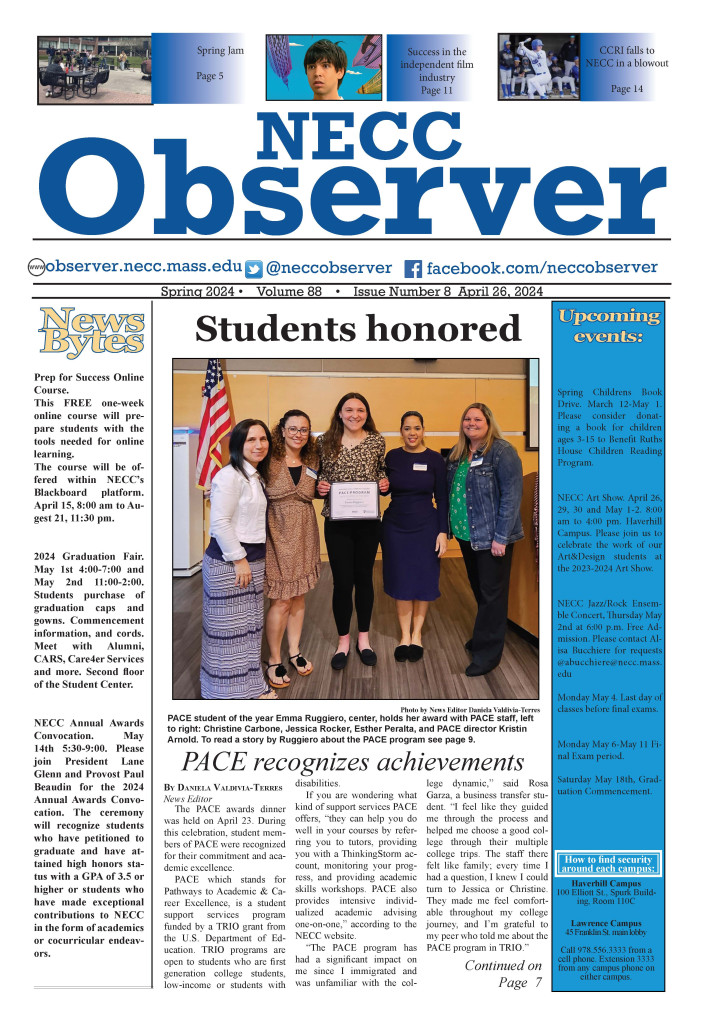This morning I read an article in the Boston Globe saying that “Over the past week, there have been an average of 656 cases per day, an increase of 8 percent from the average two weeks earlier. As of Sunday morning, there have been at least 142,900 cases and 9,723 deaths in Massachusetts since the beginning of the pandemic, according to a New York Times database.”
A few questions pop up in my mind. Why are the cases increasing? Is it because the public has not become fully aware of the dangers? Do we need more education? And most important, How are we contributing to reduce these statistics?
Then I remembered, at the beginning of the school term, one of my sons asked me if he could go to high school with his classmates. My answer was the same as my psychology teacher, Dr. Sivright, told us in class a few months ago: “I think this is going to stay here for a long time, perhaps more than twice the time we think this is going to last.”
My son told me in an upset tone, “but, we are young, healthy and we will take all the pertinent measures.” And my answer was, yes you are. However, your mother and I are not, and one of the problems is the extremely high rate of contagion this disease presents.
Throughout this time, we have learned through different media all the precautions that we must follow: Wear a mask, socially distance for greater than six feet and the use of hand sanitizer. However, I have seen many people partying on boats, having barbecues on weekends and also playing basketball in the parks. I have also seen people removing their masks and putting them in their pants pocket, their back bag or placing them in dirty places such as tables at bank’s lobbies or over car’s hoods and then putting them back on their face. I have also seen people taking off the mask to sneeze and people touching their eyes, nose and eating candy without washing their hands.
But what is happening on the side of the government, policy makers, and scientists?
An article by Propublica Newsletter, “Inside the Fall of the CDC” by James Baddler, describes the chronological failures, bad decisions, and procedures that CDC and other government offices have experienced while handling the Covid-19 pandemic. They argue that the ignorance over handling the situation by some authorities, as well as the political and economic pressure generated by strong industries, such as airlines, cruise ships, hotels and tourism in general have contributed to the spread of the virus all over the country. Moreover, the biggest problem is that Covid-19 is being used as a political tool by both major parties, which in one way or another contributes to generate false confidence in the public.
Regarding what is happening in the government, the question remains: What are we the people doing to reduce this? What should we do to acquire conscience and increase our precautionary measures?
Dr. Maribel Woodward M.D. a Delaware physician explains that there are different definitions for conscience. She said consciousness as a totality is composed of various states: attention, perception, and memory. It is the ability to selectively choose our mental experience and attitude. Attention selects something, and then perception identifies it subjectively according to our beliefs housed in our memory.
In this case, consciousness allows us to perceive what is happening around us (a disease), then to identify the options we have in order to increase our chances of survival (go to party or stay home) and then, based on our belief and knowledge, to choose the alternative that increases our chances of survival. Normally, people increase their consciousness level after experiencing a disease or a near death experience.
On the other hand, social conscience is difficult to achieve in this situation mostly because the topic is new and not well studied, and the communication that has been sent to the public has been erratic, inconclusive, and even distorted by the political influence that manipulates, discredits and devalues scientific effort.
Consequently, it has a low credibility among the collective, thus preventing the development of a solid social conscience.
As an example, she referred to the AIDS situation, where science has been working for more than 30 years and it has been quite recently when social conscience begins to be created (use of condoms, single partners etc). It has taken a lot of time and consistency to create credibility resulting in collective conscience. She concludes saying that it will take a good time to acquire a collective awareness of Covid-19.
In the meantime, let’s follow the CDC rules. It is the best we have so far.
In conclusion, it will be difficult to achieve collective awareness with an environment filled with uncertain information. However, individually we can implement all the safety measures we have been told for the last months.
We should not wait to get infected and then transmit the disease to our closest family member to acquire conscience in preventing the spread of the disease, particularly now, when Black Friday is right around the next corner.


